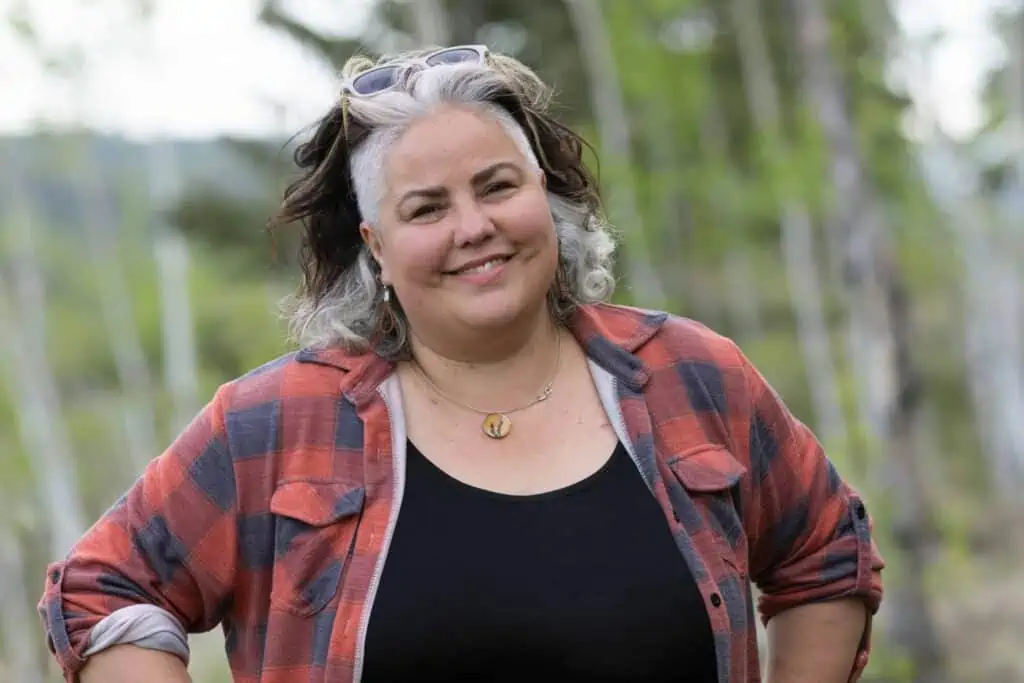They are sturdy but simple wooden boxes. But they’re indispensable to the mining industry – exploration programs go through them by the thousands every year.
And a little known plant in a quiet industrial park in the north-west corner of Whitehorse churns them out year-round for shipping throughout the territory, as well as Alaska and northern B.C.
There’s nothing fancy or high-tech about the core boxes Career Industries Ltd. manufactures.
And there’s nothing fancy about their purpose. All they do is allow exploration drilling companies to log, store and transport the rock cores they extract to assess an area’s mineral composition.
But Rick Mombourquette, who manages Career Industries, speaks with pride about those boxes – and the workers who manufacture them.
“We came up years ago with a superior product than they were using. They were routered trays in the old days, and we developed a design using just 3/8 plywood with a one-by material for the sides.”
Each box, which includes baffles to separate the core samples, is a “home-made Yukon product” cut from locally-purchased wood, Mombourquette boasts.
“We use a large staple with a half-inch crown and lots of fastening power. And we’re the only manufacturer that actually glues their boxes together as well,” he says.
“They’re strong. I can stand on them. They’re really durable,” says the robust six-footer.
They need to be sturdy. Apart from the weight they carry, they have to withstand the extra pressures of being airlifted from the drilling site by sling.
“We also developed a stackable box, whereby we can reduce the volume for freight by 45 per cent. And we ship those to Alaska.”
Until fairly recently, core boxes were a standard five-foot length, built to accommodate cores that came in only a couple of diameters.
Now, the industry wants boxes in varying lengths, and there is a lot more variety in core diameters, depending on the size of drills made by different manufacturers.
For Career Industries, that means having to maintain a more diverse inventory for when orders come in “fast and furious” during the summer drilling season.
“It’s systems go, flat-out, all summer long, as much as we can do. There’s a boom going on in the territory, and it’s long overdue. We’ve certainly had our dry days over the years.”
Mombourquette speaks from experience. He’s been with Career Industries since 1988, except for a seven-year period living and working abroad. When he returned last year, it was largely because Career Industries is a special kind of workplace.
A wholly-owned subsidiary of Challenge Community Vocational Alternatives (CCVA), the company has a mandate to maintain an integrated workforce that provides meaningful, well-paid employment to adults with disabilities.
It is definitely not a sheltered workshop, paying its employees next to nothing.
In fact, Mombourquette points out, the average wage at Career Industries this summer was $14.86 – an increase of five per cent made possible by the volume of work.
“We’re not seeing a seasonal operation any more. We’re seeing a 12-month operation” he says. “Sure, there’s a slow period during the winter months, but I have to keep a crew going, just in order to be ready for the onslaught of next year’s mining season.”
Both Mombourquette and Rick Goodfellow, CCVA’s executive director, are quick to dispel any notion that Career Industries enjoys an unfair advantage over potential competitors.
“There are no government dollars going into the core box plant. We are self-sustaining,” Mombourquette says.
“And in a good year, like this year, not only will we be able to pay all our rents and administration fees and such to Challenge, we’ll actually be in a cash-flow-positive position, being able to transfer dollars back into Challenge.”
Because a lot of the employees have disabilities, production levels are not always what they could be, but “the idea with Career Industries is to create an opportunity for these guys to work,” Goodfellow adds.
“So we have to absorb the ups and downs. Some of [the workers] are cyclical themselves. Sometimes they’ll show up for work, sometimes they won’t show up for work. Sometimes we’ll have a full crew on and our inventory production levels are where they need to be, and sometimes they’re not.”
The company absorbs the effects of those realities because of its commitment to affirmative action, Goodfellow stresses.
“Having said that, we still have the same overhead as everybody else, we still have the same production costs as everybody else, marketing costs, we still have the same shipping costs as anybody else does,” he says.
“The plant itself is not subsidized at all. So it means that we’re competitive, toe to toe, shoulder to shoulder, with anybody else in the business.”
For both men, it is a source of personal satisfaction to help improve the lives of people who often have difficulties finding work, by offering the confidence, pride and sense of independence that come with a steady job.
And for Mombourquette, the company offers the territory another significant benefit.
“How many manufacturers do you see in the Yukon? This is a home-grown product, and all the money’s staying here. In fact, for a number of years, we were the leading export to Alaska. So we’re bringing in those U.S. dollars to our community.”




